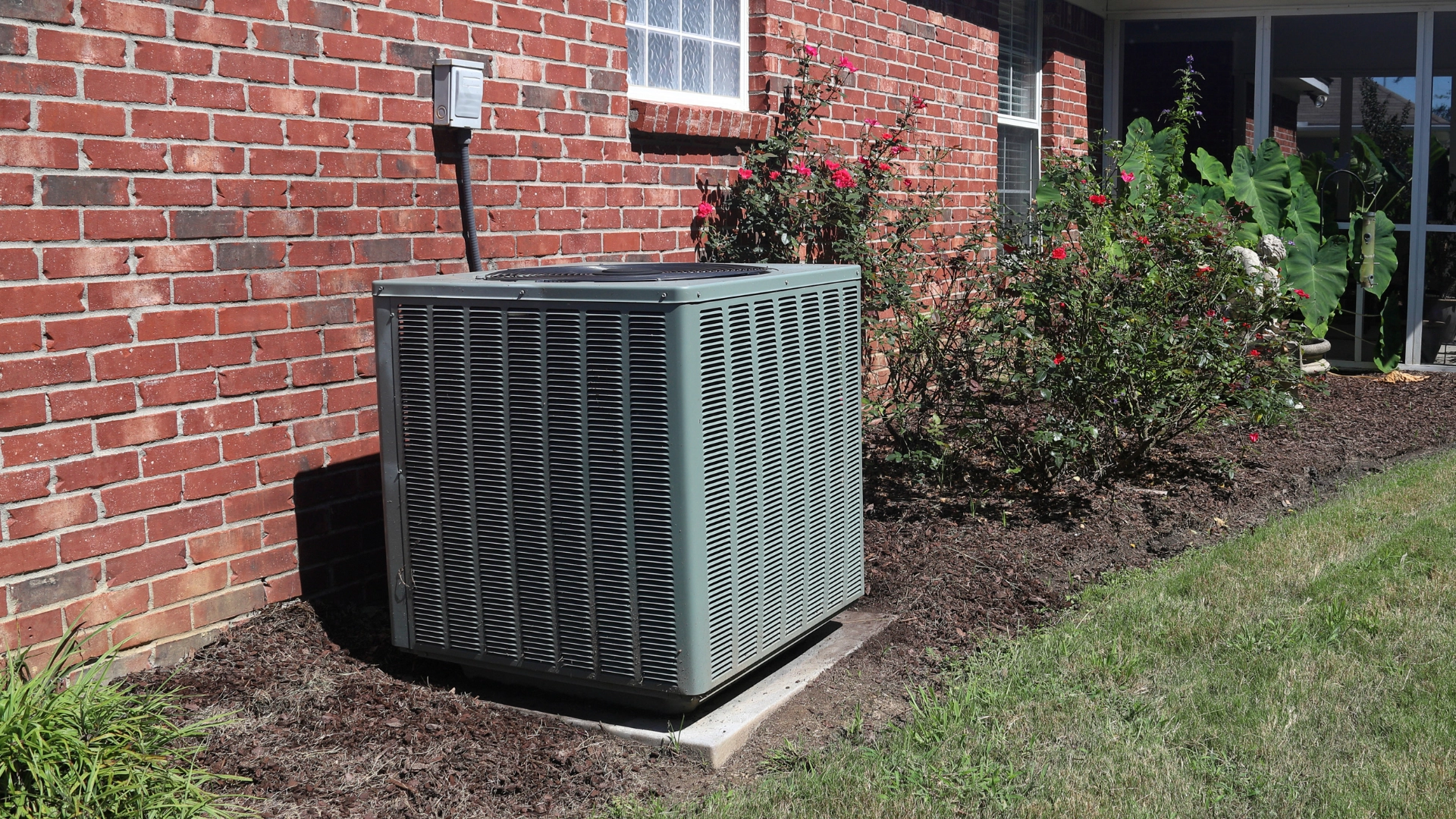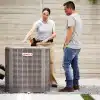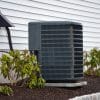If you have a central air conditioning system in your home, you probably know how important it is to replace the air filter regularly. The air filter protects your system from dirt, dust, and debris that can damage the components and reduce its efficiency.
But what if you run out of filters or forget to change them? Can you run central air without a filter? Orzech Heating & Cooling will help you answer these questions in this article!
In short, you can run your central air system without a filter for a short period of time. However, this is not recommended and can cause serious problems for your system and your indoor air quality.
In this article, we will explain why you should never run your central air without a filter for too long, what are the risks and consequences of doing so, and how to avoid this situation.
How does a central air filter work?
A central air conditioning system essentially uses the furnace air handler to circulate conditioned air in the ducts and vents to your rooms. A central air system can’t work separately and must be installed with the HVAC system of your home.
There are a lot of people getting confused about a forced air system and central air, so we decided to break this down in detail in another article.
The air filter is usually located in the return duct or near the blower fan. Its job is to trap dirt, dust, and debris from the air that is drawn into the system. This prevents them from reaching the evaporator coil and clogging it.
The air filter also improves your indoor air quality by removing pollutants and allergens from the air that circulates in your home. This can help you breathe easier and prevent health issues such as asthma, allergies, or infections.
What if you run the ACs without an air filter?
If you don’t have an air filter properly installed, things can get problematic. Running your central air without a filter means that you are exposing your system and your home to dirt, dust, and debris that can harm them in many ways. Here are some of the risks and consequences of running your central air without a filter:
- Reduced cooling capacity: Without a filter, dirt, and dust can accumulate on the evaporator coil and reduce its ability to absorb heat from the air. This can make your system less effective at cooling your home, especially in hot or humid conditions.
- Increased energy consumption: Without a filter, your system has to work harder to cool your home, which means it uses more electricity. This can increase your energy bills and your carbon footprint.
- System breakdown: Without a filter, dirt, and dust can damage your system components over time. For example, they can cause corrosion or wear on the compressor or fan motors, which can lead to expensive AC repairs or AC replacements.
- Poor indoor air quality: Without a filter, dirt, and dust can circulate in your home along with cool air. This can lower your indoor air quality and cause health problems such as respiratory infections, allergies, asthma attacks, or headaches.
- Mold growth: Without a filter, dirt, and dust can also collect in your ductwork or condensate drain pan. This can create a moist and warm environment that is ideal for mold growth. Mold spores can then spread in your home through the vents and cause health issues such as allergic reactions or infections.
How to Avoid Running Your Central Air without a Filter
As you can see, running your central air without a filter is not a good idea and can have serious consequences for your system and your home. To avoid this situation, you should always have a spare filter on hand and replace it regularly according to the manufacturer’s instructions.
The frequency of replacing your filter depends on several factors such as:
- The type of filter: There are different types of filters with different levels of efficiency and durability. For example, fiberglass filters are cheap but need to be replaced every month, while pleated filters are more expensive but last longer.
- The size of your home: The larger your home, the more air your system has to condition and filter. This means that your filter will get dirty faster and need to be replaced more often.
- The number of occupants and pets: The more people and pets you have in your home, the more dust, hair, and dander they produce. This means that your filter will get clogged faster and need to be replaced more often.
- The air quality in your area: The more polluted or dusty the air in your area, the more contaminants your filter has to trap. This means that your filter will get dirty faster and need to be replaced more often.
A general rule of thumb is to check your filter every month and replace it when it looks dirty or clogged. However, you may need to replace it more or less frequently depending on the factors mentioned above.
Conclusion
Running your central air without a filter is possible but not recommended. It may cause serious problems for your HVAC system and your homes such as reduced cooling capacity, increased energy consumption, system breakdown, poor indoor air quality, and mold growth.
To avoid these problems, you should always have a spare filter on hand and replace it regularly according to the manufacturer’s instructions. You should also seek professional HVAC services if you need help with replacing your filter or any other aspect of your central air system.




